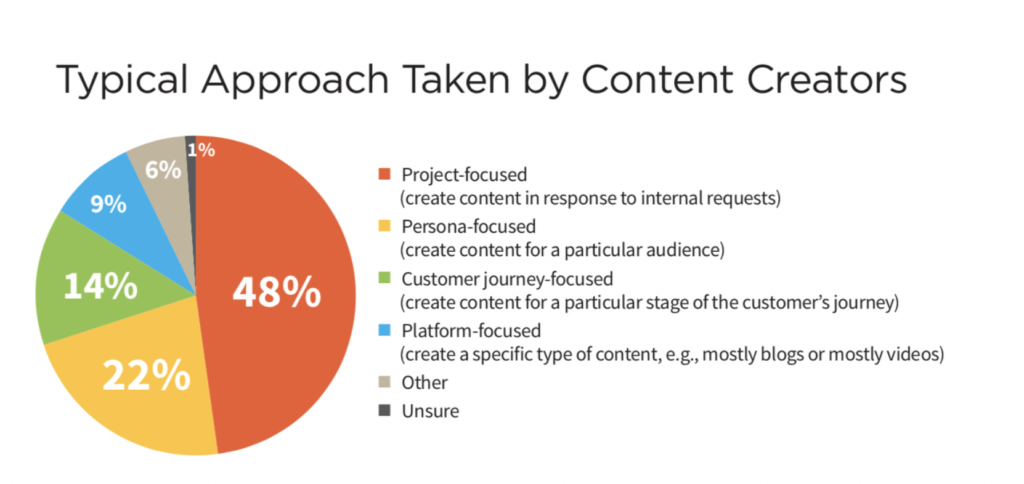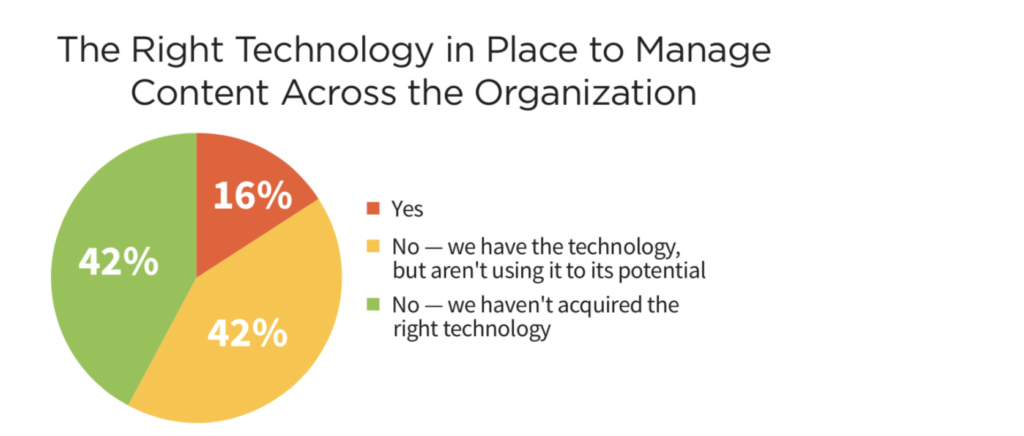If I were to tell you that the majority of content marketing efforts are only a fraction as effective as they could be, would you believe me? Well, it’s true. In a recent study Vennli conducted in partnership with the Content Marketing Institute, we uncovered that 51 percent of marketers believe their organization is not delivering the right content to the right person at the right time.
A shocking statistic considering how much most organizations invest in content marketing-related activities. In fact, according to one study, the global content marketing industry is projected to grow to $412.88bn by 2021, that’s a growth of $217.3bn since 2016.
To discover how marketing teams can optimize content marketing performance, and incorporate active listening into content marketing programs, we dug into the challenges that most teams face when it comes to creating, delivering and monitoring content across platforms. Below are two of the most telling statistics we uncovered, as well as tips for marketers on how to overcome those challenges.

Source: Vennli | Content Marketing Institute
48 percent of marketers create content in response to internal requests
We can all relate to “the tyranny of the urgent” getting in the way of our well thought-out plans.
Picture this: you had an entire quarter of audience-specific content planned out to share with your prospects and customers, then product needed a blog feature on their newest update, sales hired a new VP and thought a Q&A was a good idea, your upcoming user conference was light on RSVPs and the events team needs you to promote it to spur attendance (the list goes on and on).
Internal requests are piling up on marketers, and they’re getting in the way of a team’s ability to create the buyer-journey, persona-specific content that actually moves prospects down the funnel.

Source: Vennli | Content Marketing Institute
This finding suggests that many companies are simply waiting to speak. They know what they want to say (because their content teams are primarily responding to internal requests to do exactly that). But they’re unclear on what audiences actually want to hear—or which audiences should be prioritized.
The next time you get an internal request to create content, ask yourself the following questions:
- Will this content speak to one of our core personas?
- Does this content highlight our platform in a way that will help existing users?
- Will this content move buyers along in their journey?
If the answer to all three is no, consider giving pushback on the request.
Only 16 percent of marketers have acquired the right technology to manage content across the enterprise

Source: Vennli | Content Marketing Institute
A major factor holding marketing teams back from managing their content across the organization is scalability. And although there is more marketing technology available than ever before, a shockingly small amount of respondents feel like they have the right content marketing tech stack in place. For the few that do have some sort of technology solutions in place, an astounding 78 percent report, there is still a lot of manual work involved with their strategic content efforts.
When we compare these findings to last years, nearly the same percentage of respondents said their organization isn’t using technology to its fullest potential. However, there were more respondents that indicated that they hadn’t yet invested in the right technology. This suggests that some businesses may have spent the last year acquiring even more tools but aren’t making any better use of them than they did a year ago.
So marketing teams can make better decisions on which technology to adopt (especially when it comes to marketing tools that leverage AI), and which tools they don’t need. Vice President of product strategy, Bart Frischknecht, suggests considering the following questions when considering adding a new piece of technology to your match stack:
- Do I understand which marketing task is being intelligently automated in the product and is that marketing task relevant to my day-to-day responsibility?
- What evidence do I have that the new technology makes good recommendations or effectively automates one of my tasks?
- If I am responsible for bringing my own data, what will it take to access and connect this data to the new marketing technology?
Technology is an important piece of how teams scale content production capabilities. But in order to achieve long-term success, content marketing managers must be diligent about two things: acquiring and implementing the right technology and learning to say no to internal requests. Real success will come when companies begin deploying strategies that enable marketing teams to listen as actively as they speak. That’s when marketing can evolve from simply saying something to having something valuable to say.
About the Author: As the CCO at Vennli, Patti Doyle is all about using content to connect with customers to drive marketing ROI. She is a champion of driving Vennli’s customer experience and making sure that customers are delighted across the entire customer journey. Patti’s background is a blend of B2C, B2B, marketing, and general management, which helps her drive relevance with Vennli’s customers.
